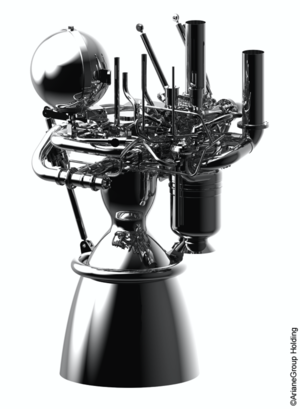UK innovation helps to fuel European space ambition
The UK’s strong entrepreneurial mindset is helping Europe unleash the huge potential of space to tackle urgent societal and environmental challenges, according to Elodie Viau, Director of Telecommunications and Integrated Applications at ESA.
The agency is collaborating with the UK to foster commercial innovation, enable next-generation connectivity, and support the development of satellite-enabled products and services in key industries, including energy, transport and healthcare.
These activities are promoting European success in the increasingly competitive global telecommunications market and accelerating the transition to a sustainable decarbonised economy, said Viau, who was delivering a keynote speech via video link at the UK Space Agency’s Space to Connect networking event in London on 1 February.
The UK’s ESA programmes are orchestrated from the agency’s European Centre for Space Applications and Telecommunications (ECSAT) at Harwell Campus in Oxfordshire, which also serves to promote these activities to a global audience.
Through its downstream business applications programme, ESA is enabling British entrepreneurs from non-space industries to develop technologies that are supporting the NHS response to COVID-19, continued Viau, Head of ECSAT.
These include an online platform that enables communities to deliver support to people that need help as a result of the pandemic, a drone delivery service for the rapid provision of medical supplies, and a web app that helped young people to stay active and keep learning during lockdown.
In addition, British scientists and engineers are enabling next-generation connectivity by making strong contributions to the development of converged satellite and terrestrial telecommunications networks.
Backed by the UK Space Agency, ESA’s ECSAT-based 5G/6G Hub will support these efforts by bringing together a range of stakeholders – including mobile network operators, satellite operators, non-governmental organisations, and vertical market businesses – to test and develop their technologies and applications in a future 5G environment. The Hub will be the first of its kind, acting to inspire future centres of telecommunications innovation.
Viau went on to highlight ESA’s recently articulated vision for the European space industry. Set out in Agenda 2025, it outlines the need to realise the huge potential of space to tackle issues of global importance.
To reach this ambition, ESA has implemented three strategic areas of focus that aim to promote the protection of space assets, bolster European responses to natural and human-induced disasters, and accelerate the drive to tackle the climate crisis.
Space-enabled connectivity is key to enabling the transition to a carbon-neutral economy – and British companies are delivering solutions that are helping to achieve this goal.
Oxford-based Darwin, for example, is developing the technologies needed to bring low-emissions driverless vehicles to the roads. With the support of ESA and the UK Space Agency, it recently launched an autonomous shuttle service at Harwell Campus that uses converged telecommunications networks to stay continuously connected.
Viau concluded: “As Europe continues to contend with numerous urgent challenges, it is vital to expand the drive to integrate space technology into people’s daily lives. We are proud to be working with the UK to use space to boost commercial innovation and support responses to climate change, COVID-19 and other issues of global importance.”















 Germany
Germany
 Austria
Austria
 Belgium
Belgium
 Denmark
Denmark
 Spain
Spain
 Estonia
Estonia
 Finland
Finland
 France
France
 Greece
Greece
 Hungary
Hungary
 Ireland
Ireland
 Italy
Italy
 Luxembourg
Luxembourg
 Norway
Norway
 The Netherlands
The Netherlands
 Poland
Poland
 Portugal
Portugal
 Czechia
Czechia
 Romania
Romania
 United Kingdom
United Kingdom
 Slovenia
Slovenia
 Sweden
Sweden
 Switzerland
Switzerland


























